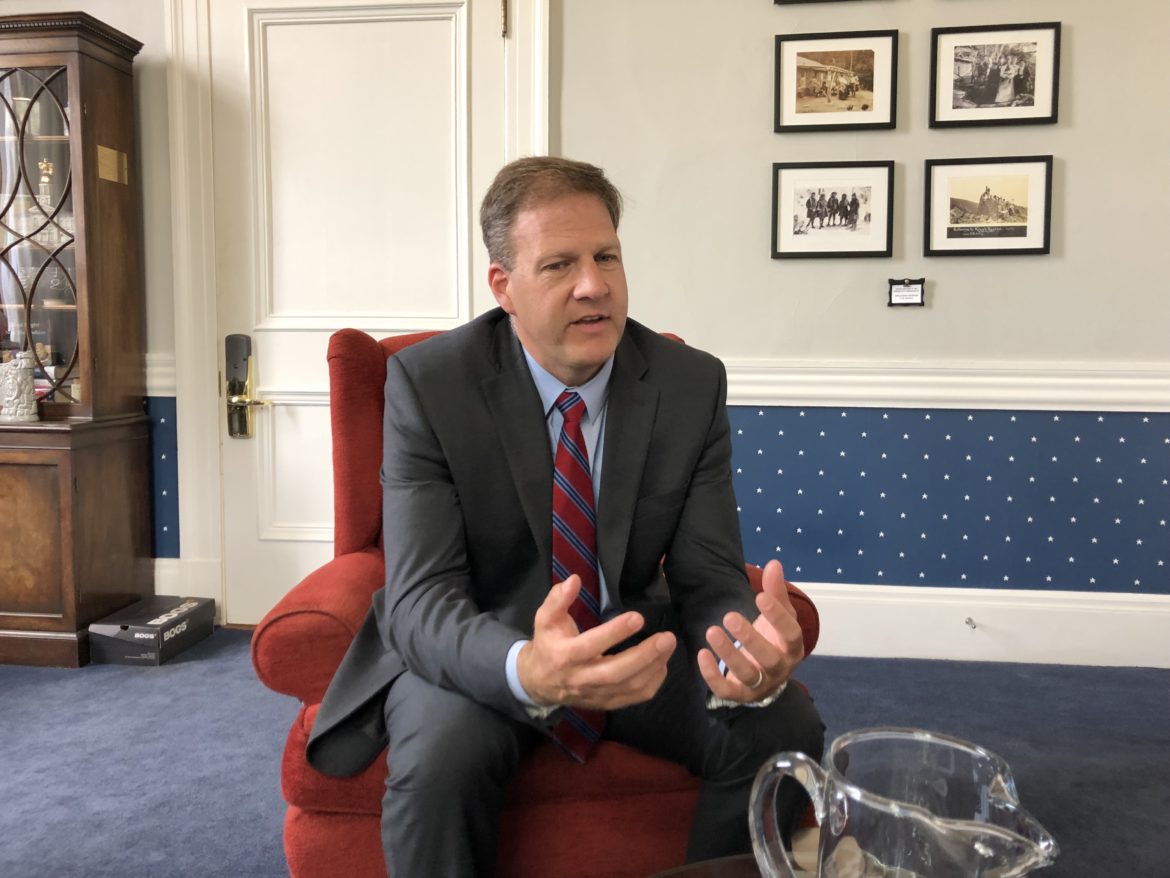By PAULA TRACY, InDepthNH.org
CONCORD – A $13 billion budget deal for the state was struck for the next two years Wednesday. It must still be approved by both full chambers and Gov. Chris Sununu.
Sen. Dan Feltes, D-Concord, said the deal includes funding for the most critical needs of the state addressing mental health, education funding for property-poor communities, an opioid crisis, and more.
Republican Gov. Chris Sununu said he will have to look at the whole package but he has said he will not support anything that increases taxes.
The Democratically controlled conference committee agreed to take out the popular Family Medical Leave Act program, which was opposed by the governor and called a tax, but left in about $3.5 million in escrow to allow for a similar program to go in the future if the legislature finds a way forward.
Still, Republicans were quick to criticize the budget.
House Republican Leader Dick Hinch, R-Merrimack, said: “You may hear Democrats championing this budget as some sort of breakthrough, but let me tell you, it is rife with policy and gimmicks that put New Hampshire on a path to insolvency.
“This appears to be a partisan hack job of a budget, and it’s just not going to work. House Republicans will stand united to support a veto from the Governor,” Hinch said.
Sen. John Reagan, R-Deerfield, said, “Governor Sununu made it clear that he will veto a budget that raises taxes or spends taxpayer dollars in a reckless manner.
“The budget is irresponsible and unsustainable and for that reason I cannot support it in its current form,” Reagan said.
In the budget, there is an additional $138 million being offered for education funding to help places like Berlin and Rumney and an effort for the first time to help try to bridge the gap between property poor towns and wealthy communities.
The sticking point between the governor and the legislature is about the business profits tax issue.
Democrats say they are freezing the tax while Republicans claim that the plan would allow for an increase for businesses.
In 2015, the state’s first tax cuts for business profits went into effect, bringing down the rate from 8.5 percent to 7.9 percent.
In 2017, the Republican-controlled legislature and Gov. Sununu passed further cuts in increments from 7.9 percent to 7.5 percent by 2021.
The first cuts took effect in January and are now at 7.7 percent to cover the current year’s taxes.
They are to continue to drop to 7.5 percent but the Democrats want to hold it at the current percent. Sununu said for the first time that he could live with the way things are now but not an increase.
Feltes said, technically, it is not an increase.
The difference is on paper and likely only $90 million in a $13 billion budget to be paid for mostly by out-of-state businesses, he said.
Next Thursday both the House and Senate will be in session for an up or down vote on the budget with no amendments accepted on the package agreed to on Wednesday.
It will then be up to Sununu to go through the document, line by line, and decide whether to veto, let it go into law without his signature or sign the legislation.
An override would require a two-thirds vote of both houses. The Democrats do not have enough votes in both houses to override a veto.
The conference committee on the budget began on Monday and wrapped up at about 1 p.m. on Wednesday.
Most interesting for many of the folks who attended budget hearings held in Belmont, Concord, Manchester, was that committee members listened to their concerns about increasing funding for education in towns that have fallen behind others since the state reduced stabilization funding over the past few years.
Berlin, for example, will get $1,017,069 more in 2020, and $3,252,468 in 2021 for a total of $11.1 million and $13.1 million respectively for those two years, coming from the current funding of $10 million.
By contrast, Hanover will lose $76,853 in 2020 and $76,853 in 2021 on the roughly $5 million it gets now.
Rep. Dave Luneau D-Hopkinton, said what the education agreement does is “build on the good work in House and Senate” and leverages the Senate framework building on full restoration of stabilization funding.
The deal also factors in the percentage of pupils who are eligible for free and reduced lunches to deal with socio-economic disparities.
Sen. Jay Kahn D-Keene, said what they heard in budget hearings from the public was the need to restore stabilization funding, recognize the fiscal capacity disparity, and recognize how some communities have slipped since funding was reduced.
The deal also includes a study committee to try to answer the question of what is the state’s responsibility to provide an adequate education that includes pre-school.
“This is a very good gesture,” Kahn said. “I think we have brought together a very good package.”





